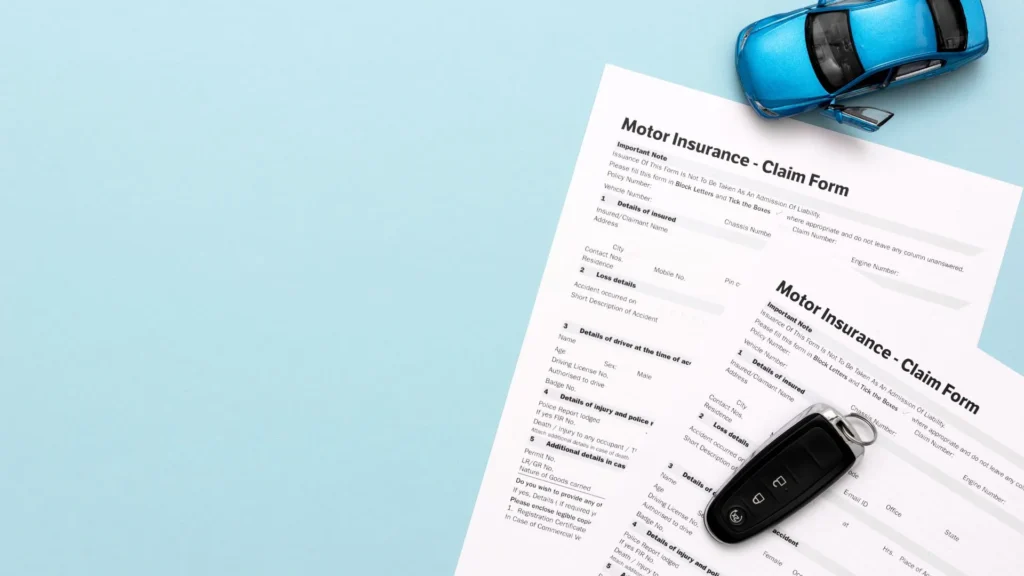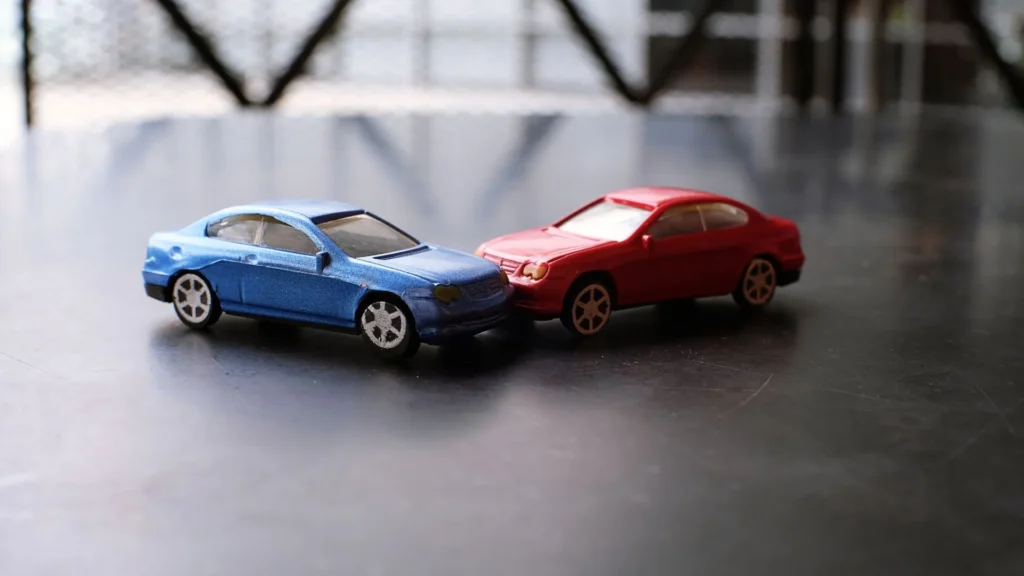A car insurance deductible is an out-of-pocket money you must pay before filing a claim with your insurance company to cover the costs per your policy. The amount of your deductible can vary according to your policy and the type of coverage you have.
Your chosen deductible will impact your premium. A higher deductible means lower insurance premiums, but you’ll be responsible for paying more out of pocket if you have to file a claim. So selecting the right amount to avoid financial stress in an at-fault incident is essential.
How Do Car Insurance Deductibles Work?
A car insurance deductible is the specified amount you must pay out of your pocket for repairing or replacing your car after an insured accident. Remember that minimum coverage policies do not have deductibles because they do not cover damage to your vehicle.
On the other hand, full coverage with comprehensive or collision insurance, or both, will require a deductible with the policy. For example, you have a $500 collision deductible and are involved in an accident that causes $5,000 worth of damage to your vehicle. You would be responsible for paying the first $500 and your insurer would cover the rest.
Higher deductibles often result in cheaper premiums. They reduce the amount of money the insurance provider will be responsible for during a claim. However, remember that if you have a claim where a higher deductible applies, you will also have to pay more. Before finalizing your car insurance policy, you and your insurance provider can agree on a suitable amount for your auto insurance deductible. That being said, you should be able to change your deductible anytime.
Types of Car Insurance Deductibles
Your auto insurance policy may include different coverage types. Some basic coverage types, like liability insurance, pay the other party for injuries and damages during an accident. Additional coverage types like collision, comprehensive, personal injury protection, and uninsured motorist property damage help cover injuries to those within your vehicle and damage to your car. All these coverages usually have a deductible component or the option for a deductible to limit the coverage cost.

How Do Car Insurance Deductibles Impact Premiums?
Broadly, the standard rule is that a higher deductible will help lower your car insurance premium. Higher deductibles might result in paying more during an insurance claim, so companies charge you less in premiums. However, it would be best to consider whether you can afford to pay the deductible sums at any time without straining your finances. If this isn’t the case, choosing lower deductibles with a slightly higher premium might make sense.
Lower deductibles mean you can’t pay as much out of pocket. Lower deductibles could also tempt drivers to submit claims more often. But this should be avoided, as filing too many claims directly raises your premium rates over time.
If you have a less-than-perfect driving history, you can make significant savings on your inflated premiums by choosing higher deductibles. Even otherwise, bigger changes can have a significant impact on savings. If your collision deductible is $500 and your comprehensive deductible is $100, raising both to $1,000 might save you over $500 annually on average.
However, small changes to your deductible levels, like increasing your comprehensive deductible from $250 to $500, can hardly change your premium.
How Should I Choose My Car Insurance Deductible?
With so many choices, you might need clarification on what deductible amount is right for you. The following points may be helpful to consider as you shop for a car insurance policy:
Do you want to pay less for premiums or repairs?
While a higher deductible will lead to lower insurance premiums, you will still incur more extraordinary out-of-pocket expenses should you need to claim for vehicle damage. That means you will have to pay the entire amount out of pocket for claims below your high deductible amount without any help from insurance.
On the other hand, if you opt for a lower deductible, your car insurance rate will likely be higher. However, you will have lower out-of-pocket costs if you file a claim. So, if your deductible is $100 and you cause $350 in damage, you would only be responsible for your $100 deductible, with the rest being covered by your insurance. However, if you never file a claim for repairs with a lower deductible, you could unnecessarily spend more on your premium.
How Much Can You Afford to Pay Out of Pocket?
Most insurance experts advise deciding how much you can pay if your car is damaged in an accident before choosing a deductible. You ought to avoid a deductible higher than your budget. If you choose a higher deductible than you can afford, it may cause deep financial stress.
Does Your Lender Have Deductible Requirements?
If your vehicle is on lease or loan, your lender will likely require you to carry comprehensive and collision coverage for your vehicle. In that case, you will need to choose deductibles for each. Some lenders will set the deductible sum on their own. To determine the restrictions, check with the bank or whichever financial institution handles your loan or lease.
What Coverage Types Do Not Require a Deductible?
Most states in the USA have a minimum liability coverage requirement for car insurance. This helps cover injuries and property damage for another person in the case of an accident where you are at fault. When you purchase liability coverage, you will choose a specific amount of coverage limit. These coverage limitations represent the maximum sum the insurance provider will pay the opposing party in the event of a covered claim.
As liability coverage is designed to cover the other party’s injuries and vehicle repairs, this type has no deductible component. Also, there is generally no deductible if you choose optional coverage types like roadside assistance or rental car reimbursement.
When Is It Not Required to Pay Your Car Insurance Deductible?
There may be times when you are exempt from paying your deductible. Generally, you won’t be responsible for your deductible if:
- You are in a collision where another driver is found to be at fault and has insurance.
- You have a diminishing deductible. Some insurance companies offer a diminishing deductible over time if you remain accident- and violation-free.
- You purchase a full-glass option on your comprehensive coverage, and the damage to your vehicle is limited to glass.
Conclusion
All in all, deductibles are the sum you agree to pay out of pocket after a car accident. The sum agreed to directly influence the sum to be paid as your car insurance premium. Deductibles are often explained as a tool to help you control your insurance premiums. There are, however, more effective ways to save on your car insurance. This article established the various complex aspects of car insurance deductibles and what they ultimately mean for your insurance premiums and overall finances.





























